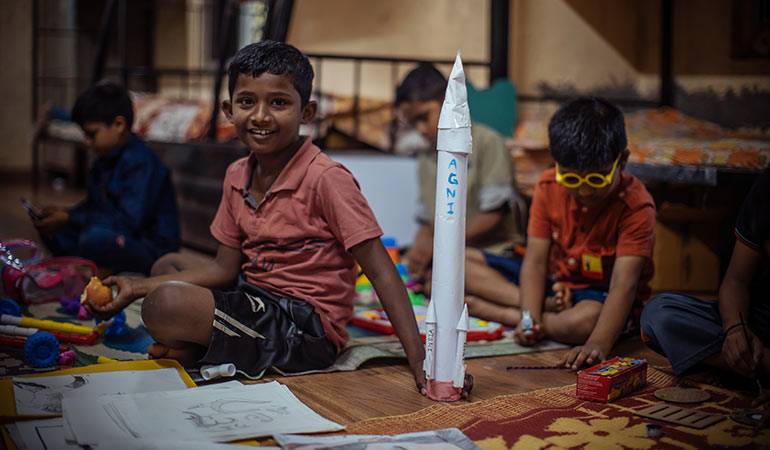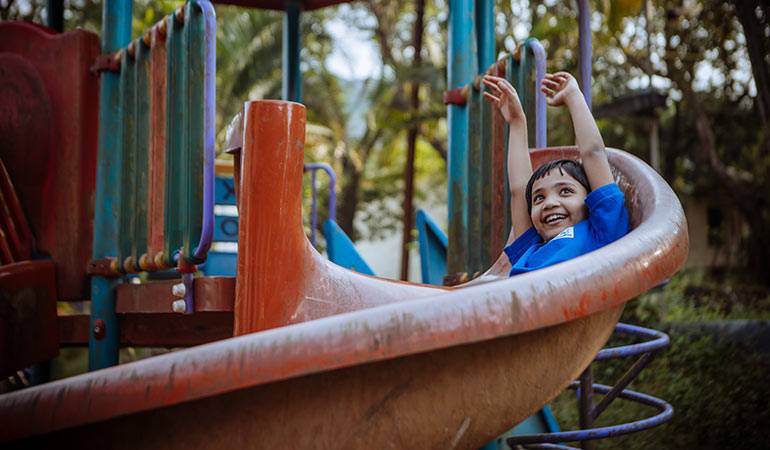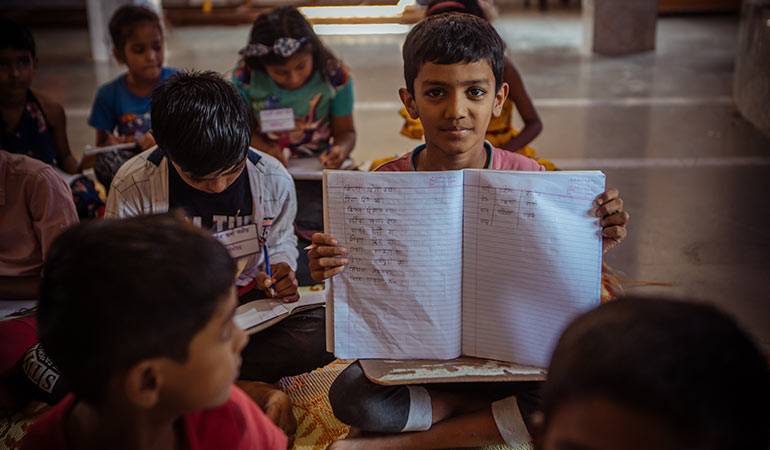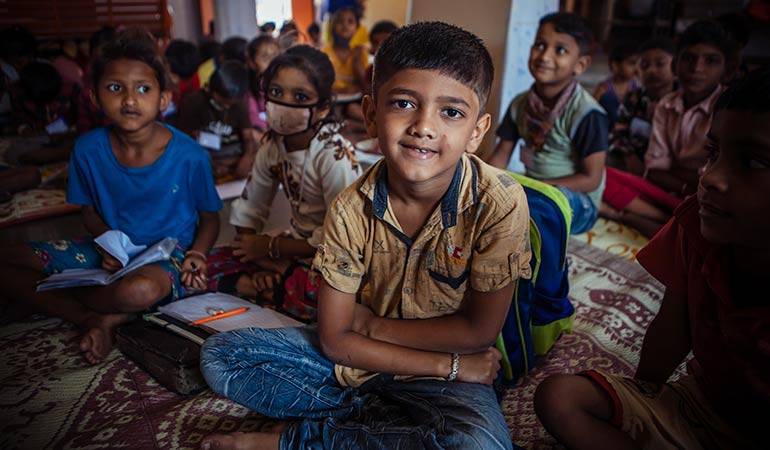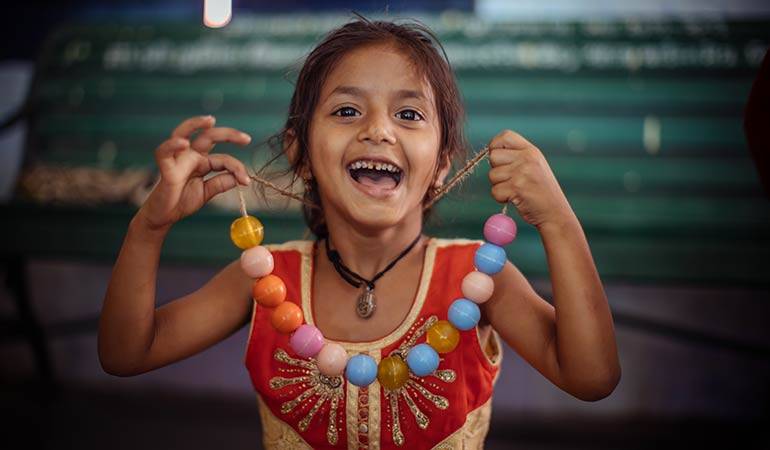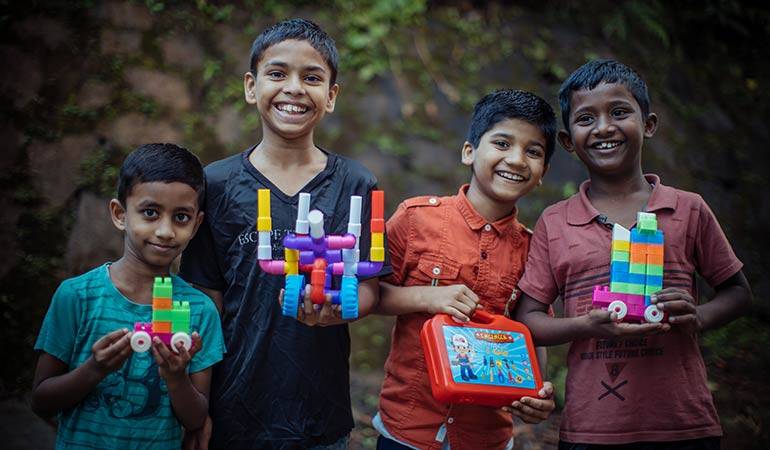Who We Are
India Sponsorship Committee is a registered and recognised non-profit organisation established in 1967, when child sponsorship was a nascent concept in India.
Our Vision
A society in which all children, without any distinction of caste, creed or gender, enjoy their rights, and are empowered through education to develop to their full potential, embracing values and learning to live together with faith in the human race.
Our Mission
The mission of the India Sponsorship Committee is to provide children in need, the support required by them, for an education that offers them opportunities that develop their full potential. Further, it seeks to create opportunities for children to become responsible, contributing members of society by helping them meet their family, social, emotional, physical, and spiritual needs.
Our Journey
1967
Phase 1
- March 21, 1967 - ISC established with support from International Union of Child Welfare and CanSAVE
- Local child support organizations help identify 12 underprivileged children
- Sponsors from the UK, France, Austria, and Italy connect with ISC
- ISC sponsors 3,000 children, becoming one of the largest organizations in the IUCW network
1977
Phase 2
- 1976 - Bal Gram, Lonavala shifts focus from individual to community-based child care
- 1979-80 - Urban Community Developmental Project sponsors education of 150 children from Pune slums
- 1980 - Kasor Project in Gujarat sponsors education of 28 children from the poorest section of the village
- 1982 - Antar Bharati Balgram School in Lonavala makes education accessible for children from ISC and neighboring villages
1987
Phase 3
- 1990s - Balwadi in Kurvande started, later becomes secondary school
- 1995 - Bond newsletter launched and circulated to donors and volunteers globally
- 1995 - School based educational support program started with the SION Project
- 1995-96 - Nearly 1,000 ISC children now admitted to school, along with birth certificates to assist their future
1997
Phase 4
- 1998 - Anand Niketan program for socio-economic development of tribal community starts
- 2001 - Havi Havishi, a gender equality awareness program is initiated
- 2001 - Antar Bharati School extends upto 7th standard
- 2005 - English medium curriculum rolls out, one grade at a time
2007
Phase 5
- 2007 - ISC Industrial Training Institute recognised as private ITI
- 2014 - Bal Gram and Antar Bharati Balgram School move to eco-friendly solar power
- 2014 - ISC Pune collaborates with the Police to inspire children to be agents of change
2017
Phase 6
- 2019 - Skill development course in Retail Management initiated
- 2019 - ISC Pune introduces e-learning with Read to Learn project
2021
Phase 7
- 2020 - Antar Bharati Balgram School switches to virtual learning model
- 2020 - Essential supplies distributed to 1,000+ families
- 2021 - Saksham, an empowerment program to enhance employability of young women
- 2021 – Third-party impact study for Bal Gram commissioned
- 2021 - Robust internal monitoring and evaluation system built
Our Programs
Our primary goal is to facilitate holistic growth of underprivileged children in an environment that’s safe, nurturing, and supportive of their skills and talents to make them independent and contributing members of society. The manifestation of this philosophy is evident through four programs, currently working for communities in Lonavala and Pune.
Balgram – A children’s village that provides family-based care to nurture personal relationships, educational betterment, and skill development.
Aakar – A program for building 21st century life skills and attitudes through guided interventions for gender equality and safety.
Antar Bharti Balgram School – Programs for formal, informal, and vocational learning to make education the transformative tool to reduce dropout rates and eradicate poverty.
Saksham – An empowerment program designed to mentor young women into becoming financially independent role models for the next generation.
Sarathi – Quality Settlement program for all ISC children aiding their career progression to attain financial independence.

